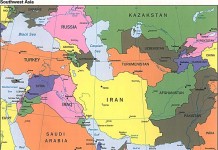
As the direct peace talks between the US and Afghan Taliban move along – and the sixth round takes place in Doha, questions are being raised regarding the prospects of success. Any negotiations have to incorporate the positions of various stakeholders. More importantly, first the stakeholders have to agree to talk and then continue the process until a reasonable accommodation has been achieved. Then there are spoilers that do not want the conflict to be resolved – as that would jeopardize their perceived interests.
In this context how then we evaluate the on-going talks keeping the perspectives of various parties in mind.
There are three main interlocutors to these talks: Afghan Taliban, the Afghan Government, and the US, leading an alliance of foreign troops in Afghanistan. Meanwhile Pakistan is facilitating at this point and is not directly participating.
For US and Afghan Taliban to hold direct talks was a first step that indicated the willingness of the both interlocutors to engage. The US and Afghan Taliban have also held direct talks in the past, but they have been very subject specific. For example, when US and Taliban negotiated on the release of POWs, and Bowe Bergdhal.
The US has now change its position and decide to take a holistic approach to talks with the Taliban. According to Zalmay Khalilzad, there will be no agreement until everything is agreed on. The primary focus areas include a complete ceasefire, foreign troops withdrawal, Counter Terrorism assurances, and Intra Afghan dialogue. However the sequencing of these agreements is proving to be challenging.
On the other hand, Afghan Taliban had always wanted to hold direct talks with the US and complete withdrawal of foreign troops from Afghanistan. This is critical to understand even before we get the specific demands of each party.
Then there are the secondary stakeholders of Afghan peace talks, which involve Iran, Russia, and China. In the face of unilateral US withdrawal from the 2015 Iran nuclear deal (JCPOA) last year and re-imposition of sanctions, on May 8 Iran decided to incrementally withdraw from the agreement too, unless the other signatories (UK, France, Germany, China and Russia) ease restrictions placed on its banking and oil sectors in sixty days.
These developments, including any military escalation, are bound to complicate the Afghan peace process. China and Russia are cooperating on the Afghan peace process, and a number of related meetings have taken place in Russia. However, China and Russia are also close to Iran, with China being the largest crude oil customer for Iran, and India the second. Iran is a vital pillar of Russian Middle East strategy, to include Syria.



